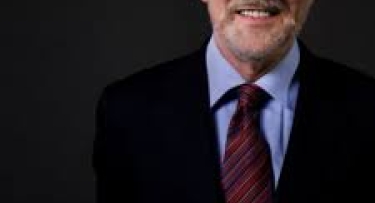
Mercy’s Center for Global Engagement (CGE) played host to a world-renowned expert speaker, former U.N. Assistant Secretary General Franz Baumann, to talk about the parallels between two global crises happening simultaneously—the COVID-19 pandemic and climate change.
"The Impact of COVID-19 on Climate Change” was presented as part of the CGE’s International Speaker Series, which took place on May 12 as a live stream on Zoom.
Michiko Kuroda, an International Relations and Diplomacy lecturer and a Visiting Fellow for U.N. Affairs, directs the Speaker Series with an eye to compelling issues of worldwide importance. The most recent topic was chosen after some environmentalists observed that the challenges of the pandemic may be eclipsing the urgency of global warming.
Kuroda, who has been a colleague of Baumann’s since they worked together at the U.N., said, “I knew Professor Bauman was well qualified to speak forthrightly and with great authority on climate change. He has given several TED talks and published numerous articles on climate change.” Finding shared aims between the two global crises seemed a logical next step, and her invitation to Baumann was readily accepted.
During the 90-minute presentation, viewed by about 30 participants that included students, faculty and other members of the Mercy community, Baumann described climate change and COVID-19 as “flip sides of the same coin of humanity encroaching on nature. Now nature is fighting back with increasing intensity.”
A steady stream of comments from participants were posted in the chat window. One participant posted, "First generation to experience global heating, last generation who will be able to do anything about it. WOW!" Another remarked, "Both [crises] can only be solved on the basis of scientific insights... neither are matters of faith or belief.”
Kuroda’s takeaway from the lively dialogue between Professor Baumann and his audience? “These are matters that are important to everyone, not just scientists, analysts and policy makers,” she said. “Early action is critical, so any action, no matter how small, can contribute to either the proliferation of or the solution to these problems. Everyone can think of something they can do.”
